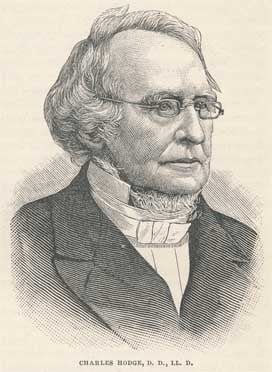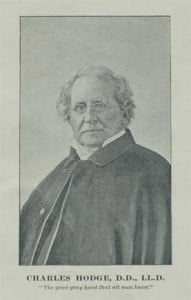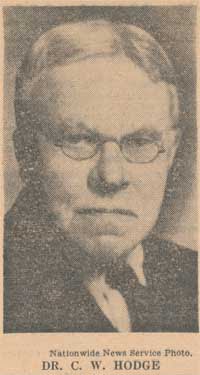The Last of An Amazing Family
Has there every been an equal to one family name serving the same educational institution in the history of American Christianity? We would be hard pressed to find a similar example to the Hodge family at Princeton Theological Seminary.
First, there was Charles Hodge, serving the Lord as a professor from 1820–1878. There is fifty-eight years of continuous service, preparing ministers for the gospel ministry. His “Systematic Theology” has stood the test of time as being the greatest exposition of Reformed theology in America.
Charles Hodge had eight children, including two sons who also taught at Princeton Seminary. Caspar Wistar Hodge taught from 1860 to 1891, while Archibald Alexander Hodge taught from 1877–1886. Both carried on the line of the family name, but more importantly, carried on the same committed to the infallible Word of God as summarized up in the Westminster Standards.
The grandson of Charles Hodge, and son of Caspar Wistar Hodge, was Caspar Wistar Hodge, Jr. He was born this day, September 22, 1870, in Princeton, New Jersey. Studies at Princeton College, the Seminary, and oversees school at the Universities of Heidelberg and Berlin, this grandson of Charles Hodge taught on the collegiate level at Princeton and Lafayette. It was noted that he had a deep Christian spirit and a breadth of learning and scholarship in those assignments.
It was no wonder that he was asked then by the Board of Directors to take over the Chair of Systematic Theology to which his immediate family had made so much a blessing to students down the ages. His inauguration to that post took place on October 11, 1921. It seemed fitting that the grandson of Archibald Alexander, Maitland Alexander, who was the president of the Board of Directors of Princeton, be the one who gave the charge.
This second decade of the twentieth century was a challenging one, in that, at the end of the decade, Princeton Seminary would suffer the loss of both J. Gresham Machen and Robert Dick Wilson. The former would grieve over the fact that Caspar Hodge would stay on at the faculty of Princeton, after the board was reorganized to allow two signers of the infamous Auburn Affirmation to sit on it. Yet, while Caspar Hodge did stay on, his heart was at Westminster Seminary, in that time and time again, he would send financial contributions to the new seminary. Further, he spoke of the fact that he would openly defend the name of Dr. Machen in conversations, sometimes with heated exchanges. He would go to be the Lord in 1937, having spend thirty-six years at Princeton Seminary, and the last of the famous Hodge family to be associated with this school.
Words to live by:
Doctrinally, this last of the Hodge line at Princeton Seminary was in complete agreement with every other Hodge family of professors, that is, adherence to the Scriptures of the Old and New Testaments, as well as adopting the Reformed faith of the Westminster Standards. It is to be both a prayer request as well as a praise item that the message of the gospel goes on through generations. Let us commit ourselves to the family and its spiritual growth in the things of the Lord.



